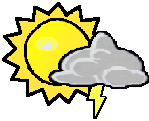My house is “at” the side of the road. But it’s “on” Doxxing Myself road. But I live “at” 123 Doxxing Myself Road. And Doxxing Myself Road is “in” White Picket Fencia. English is dumb.
Why don’t I live at 123 DM Road at white picket fencia at the side of the road at the country I live in at earth?
In Spanish it's like that. We barely distinguish between "on, at, in" and use "en" for mostly all of it.
"En la calle Doxx", "En el número 123 de la calle Doxx", "En Vallablanca de Enmedio".
Where's the ball? "En la mesa", because ffs it's a table, obviously on top of it. "En el cajón" because obviously it's INSIDE the drawer. "En casa" because it's definitely within the house. Etcetcetc
This is a bit incidental but Norwegian Wikipedia articles on various towns and cities in Norway will sometimes have a section in the infobox labeled "preposition" (preposisjon), because indeed in Norwegian you're sometimes "in" (i) a city and sometimes "on" (på) a city, and you just kinda have to memorize which cities are på cities and which cities are i cities: it all comes down to tradition, and has to do with the etymologies of the place names, på cities usually being named after farms, I believe.
Also, "at" the side of the road? It doesn't strike me as super weird, but I think I'd say "by" the side of the road, personally.
Also also, in my conlang I obviously made things much simpler by just using one preposition for more or less every locative sense.
Wait til you find out Brits say "at hospital" vs "in the hospital"
I asked a brit friend about this recently, according to her "at the hospital" means you are visiting, "in hospital" means you are a patient
Don't Brits say "in hospital" not "at hospital"? Like I'm not an expert but I did watch a lot of Medlife Crisis way back when and I can't recall him ever saying "at hospital"
It stands out to me but I'm not frustrated by it, I just think it's an interesting difference.
Yes, English propositions are an infuriating part of speaking the language, even if I've been speaking it fluently for over 18 years.
did ya ever notice how we drive on the parkway and park in the driveway
Just wait until you hear about customary units: you're gonna blow a fuse.
If you're interested in the subject of English language randomness, I highly recomment this video of Ed Rondthaler, who advocated for a simplification of English spelling. Interesting and highly entertaining.
I found a YouTube link in your comment. Here are links to the same video on alternative frontends that protect your privacy:
Ich wohne in dem Haus in der Doxx Street am Straßenrand, um die Ecke vom Marktplatz.
Here's my guesswork for how they generally get used: "at" is for a specific location that could be represented as a point, usually when you're inside or at the edge of it, where it doesn't matter what part of it you're actually at, usually in the context of travel or giving directions. "on" is more for certain things that are large, where you're not trying to be specific, probably when you're literally on top of something or using it. In is when you're literally inside the bounds of something, but again it's relatively unspecific.
You can't use at when a thing has too large of borders. You can't use on when you're not on top of it. You can't use in when the thing doesn't have defined.
But I guess really it's like you've said. The meaning of each preposition is specific to the noun it is paired with.






